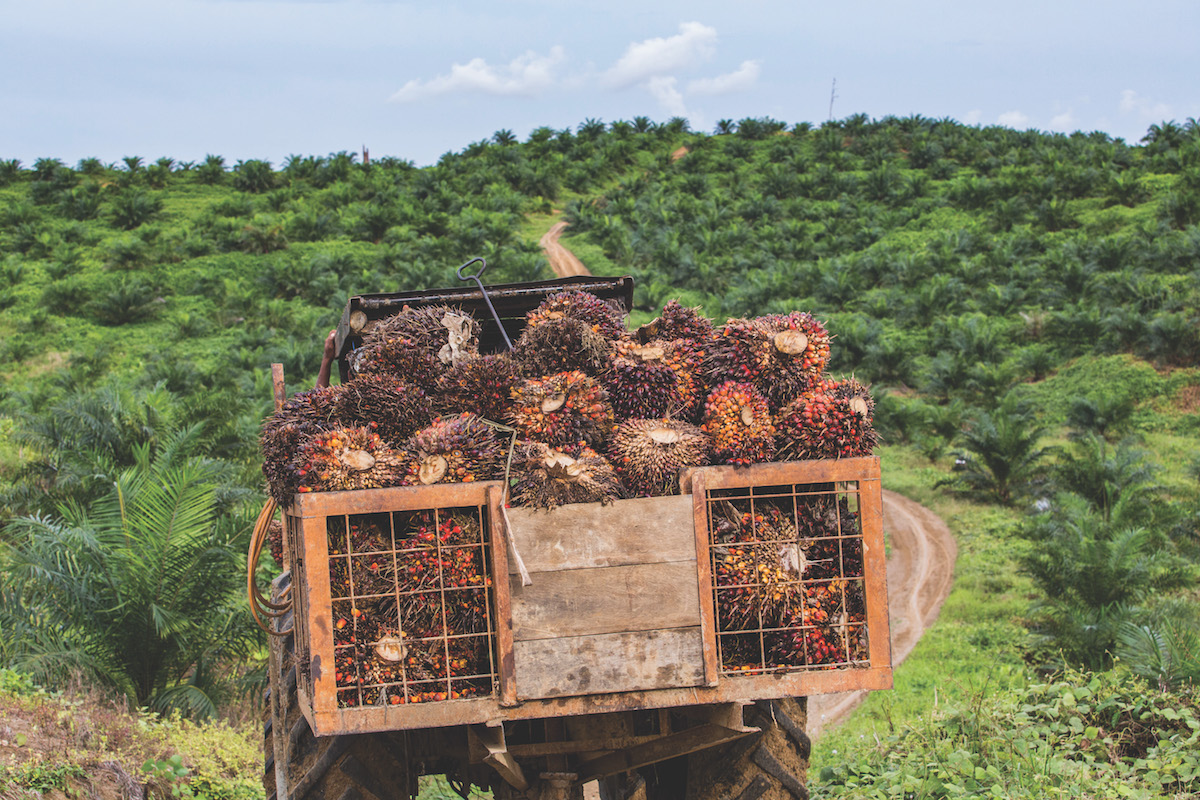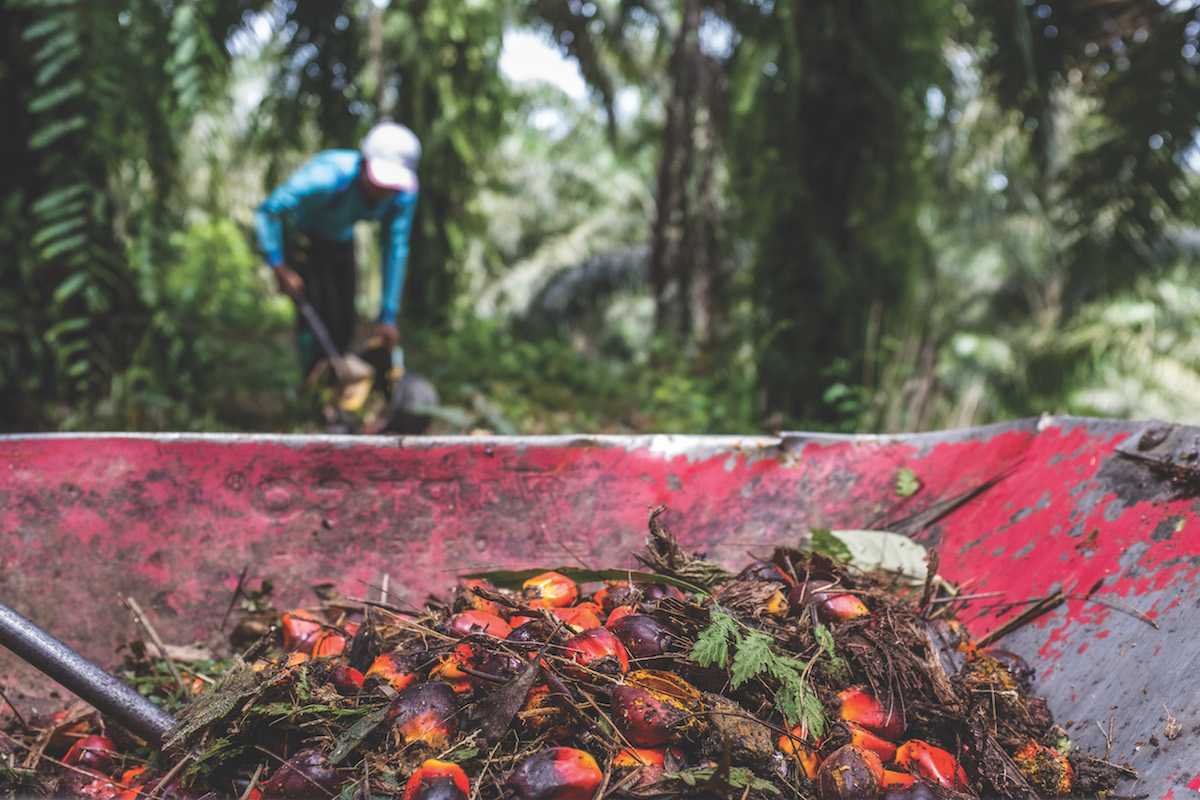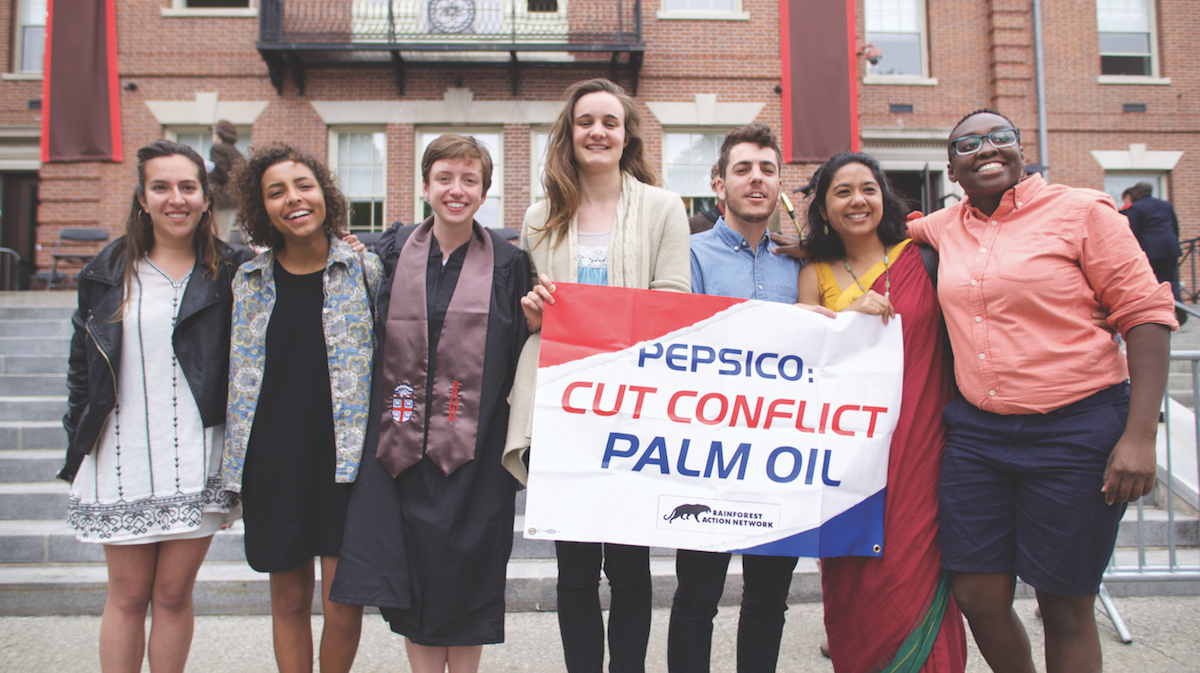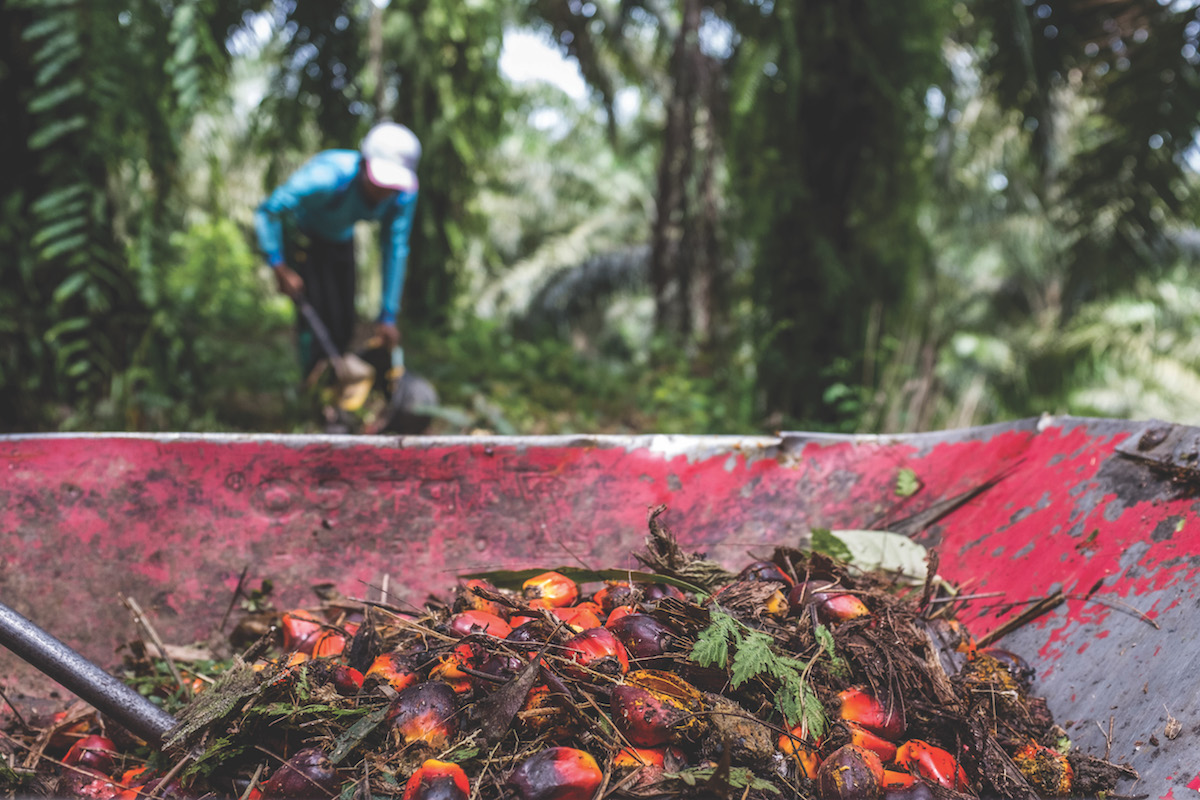The global demand for palm oil, the most widely used vegetable oil on Earth, is only increasing. It is found in over half of all packaged goods in an average grocery store — everything from lotions to lipstick, granola bars to nut butter — and it is increasingly used in biodiesel fuel.
 To produce this commodity, companies have already burned and clearcut incredible swaths of the rainforests of Indonesia and Malaysia and violated the rights of local communities whose livelihoods and lands have been stolen and lands developed into industrial scale palm oil plantations. Now, the Conflict Palm Oil industry is setting its sights on new territories and threatening the last tropical rainforests of the Congo and Central and South America. That is why it is critically important to not only stop the expansion of Conflict Palm Oil in Indonesia and Malaysia, but to also transform the palm oil industry at large.
To produce this commodity, companies have already burned and clearcut incredible swaths of the rainforests of Indonesia and Malaysia and violated the rights of local communities whose livelihoods and lands have been stolen and lands developed into industrial scale palm oil plantations. Now, the Conflict Palm Oil industry is setting its sights on new territories and threatening the last tropical rainforests of the Congo and Central and South America. That is why it is critically important to not only stop the expansion of Conflict Palm Oil in Indonesia and Malaysia, but to also transform the palm oil industry at large.
 RAN was one of the first organizations to sound the alarm on this industry almost a decade ago, and we continue to pressure the worst offenders. We are researching, reporting and campaigning in defense of the rights of workers on palm oil plantations, local communities, and the world’s last critical rainforests. Most of all, we have maintained pressure on global snack food companies that are major drivers of the palm oil market and exposed the impacts of the biggest laggard: PepsiCo.
RAN was one of the first organizations to sound the alarm on this industry almost a decade ago, and we continue to pressure the worst offenders. We are researching, reporting and campaigning in defense of the rights of workers on palm oil plantations, local communities, and the world’s last critical rainforests. Most of all, we have maintained pressure on global snack food companies that are major drivers of the palm oil market and exposed the impacts of the biggest laggard: PepsiCo.
As the largest globally distributed snackfood company, PepsiCo is a major user of palm oil and has yet to take full responsibility for its palm oil supply chain. PepsiCo knows that Indofood — PepsiCo’s partner and the sole maker of PepsiCo branded products in Indonesia —is an extremely controversial company, with documented cases of worker exploitation and child labor, deforestation, and land conflict on its plantations. But PepsiCo continues to churn out inadequate paper commitments that leave major loopholes for its controversial partner Indofood.
For four years, RAN has continued to call out PepsiCo’s inaction and their public relations “greenwash” statements through our well-documented research that reveal the deep and very real connections between Conflict Palm Oil and PepsiCo. A string of high-profile RAN reports — beginning in July 2017 — has exposed PepsiCo’s supply chain connections to a rogue palm oil company named PT. Agra Bumi Niaga. That company has continued to clear forests in the critical and threatened Leuser Ecosystem without a permit and against the national moratorium on clearance for palm oil. PT. ABN destroyed critical habitat for the endangered Sumatran elephant and then shipped the palm oil coming from its plantations into the global palm oil supply chain — which leads back to PepsiCo products around the world.
 This year, our campaign went straight to the top — sending activists to speak directly to the leaders of PepsiCo again and again. In New York City, Dallas, Sedona, Chicago, and more, RAN activists were determined to show up wherever PepsiCo executives were speaking — and to make sure that PepsiCo answers for its palm oil supply chain. With banners, speakers, and chants, students and community members made sure that PepsiCo heard the very real demands that the snack food giant must “Cut Conflict Palm Oil Now!” And we won’t stop until they do.
This year, our campaign went straight to the top — sending activists to speak directly to the leaders of PepsiCo again and again. In New York City, Dallas, Sedona, Chicago, and more, RAN activists were determined to show up wherever PepsiCo executives were speaking — and to make sure that PepsiCo answers for its palm oil supply chain. With banners, speakers, and chants, students and community members made sure that PepsiCo heard the very real demands that the snack food giant must “Cut Conflict Palm Oil Now!” And we won’t stop until they do.
